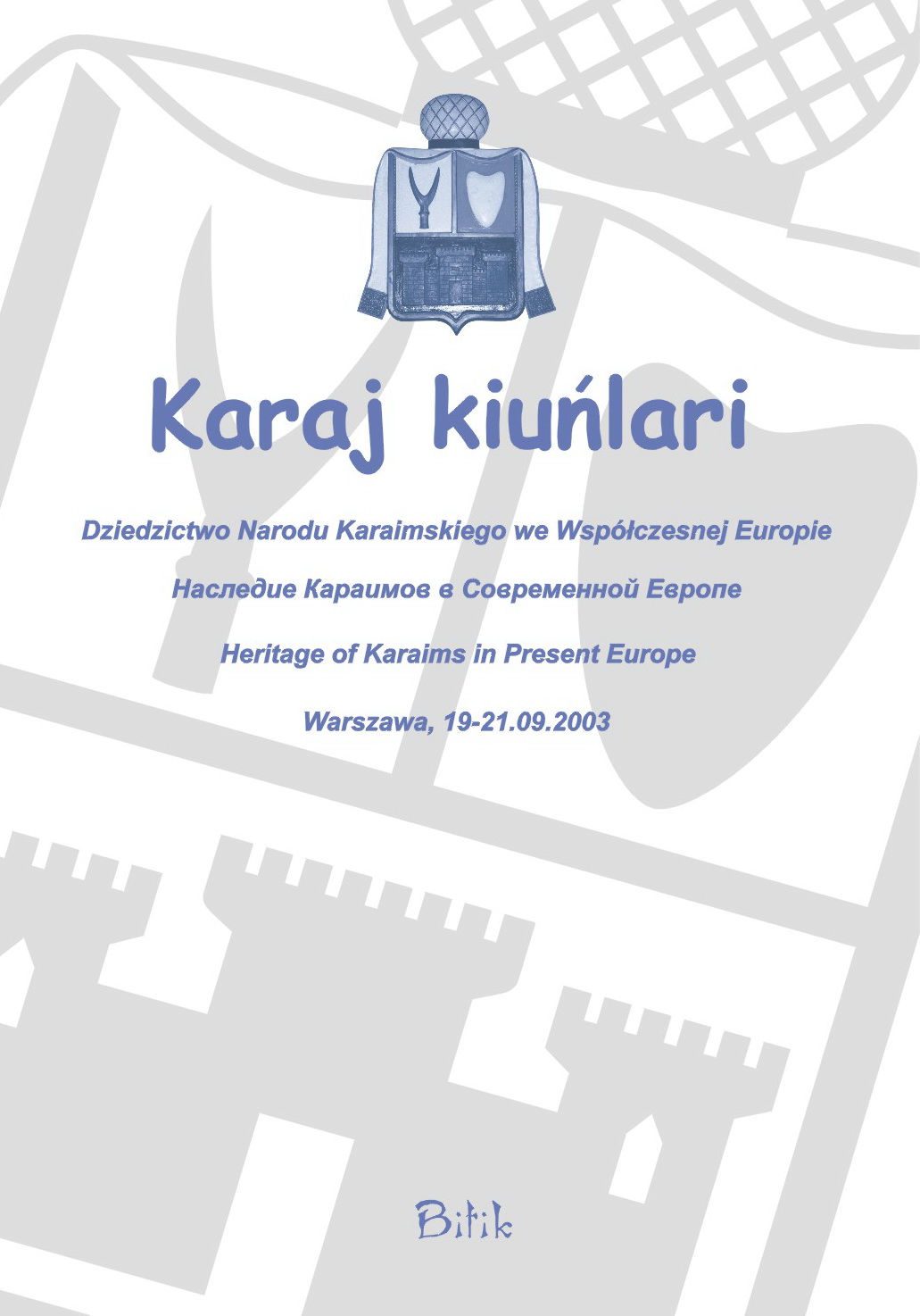Karaj kiuńlari: Heritage of Karaims in Present Europe


This work is licensed under a Creative Commons Attribution-NonCommercial-ShareAlike 4.0 International License.
Synopsis
For the first time ever a meeting Karaj Kiuńlari ‘Karaim Days’ was convened by the Karaim Association in Poland and the Karaim Religious Association in Warsaw on 19-21 September, 2003. Part of the meeting, sponsored by the Ministry of Culture and the Ministry of the Interior and Administration of Poland, was an international symposium Heritage of Karaims in Present Europe, which took place on 19-20 September. The purpose of the symposium was to bring together scholars and researchers, both Karaims and non-Karaims, with representatives and activists of Karaim communities spread throughout the world.
The first day of the symposium was devoted to the Karaim language, music, culture, identity, archives, museums, social life and biographies of outstanding Karaim scholars and activists. Presentation of papers continued on the second day of the symposium. Some of them concentrated on religion. Then representatives of Karaim communities of Poland, Lithuania, Russia, Ukraine and France read their papers devoted to important questions of the past, present and future of the Karaims.
The first three decades of the 20th century in Poland and Lithuania must be assessed as the period of a remarkable development of Karaim culture and literature, whereas in Russia the development was brought to an end in 1914. In Russia and Ukraine, the period of the 1920s and 1930s was marked by pulling down and demolishing sanctuaries, burning libraries, killing and banishing people. Many Karaims escaped going on emigration to other countries, mainly France. The time that came after the World War II was not good to cultivate national customs and profess religion in Poland and Lithuania, either. It was only in the 1990s that social and religious life revived. At the same time Karaim ethnicity and religion started attracting attention of international researchers, as it can be illustrated by the articles in this volume.
The articles published in the present volume are diversified. Some of them are scholarly papers, some bibliographical contributions; in other articles non-professional enthusiasts make efforts to systematize their knowledge of the Karaim culture and history, to record the images of the world of their ancestors that is passing away.
The editors were obliged to abbreviate some papers. Despite this we tried not to interfere in the style and views of the authors, even if they presented ungrounded findings, false facts, wrong etymologies and waged opinions with which the editors could not agree. Therefore, the authors must take the responsibility for their articles. It concerns such vital matters as the national name Karaims or Karais (the English term Karaite is not accepted by most Karaims) and the question of ethnic and religious identity which is strictly related to this, as well as the relation to Judaism and the real or imaginary remnants of a pre-monotheistic culture. The editors only tried to correct evident mistakes and to unify the style of editing and some terms, including the use of the title hakham and hakhan, the latter being justified only for the dignity of Seraia Khan Shapshal after 1928 in Poland and Lithuania.
The present volume includes twenty-one papers read during the seminar, in two versions each. Papers presented in Polish are published in Polish and Russian translation, whereas Russian papers are in Russian and Polish translation. Two contributions presented in English (Tapani Harviainen and Henryk Jankowski) are published in the original English version and Polish translation. The editors have appended English abstracts of all papers to this volume. Since only a few contributors sent English abstracts and some did not send them at all, the editors prepared some abstracts on their behalf.
The Karaims are a nationality whose culture, traditions, religion, language and literature is very old and well documented. Nevertheless, they are rather unknown to the outside world and researchers. The papers published in this volume illustrate part of this culture and contribute to a better knowledge and understanding of the unique heritage of Karaims, which seems to be an important component of the universal cultural values of humanity.
Mariola Abkowicz and Henryk Jankowski
References
-